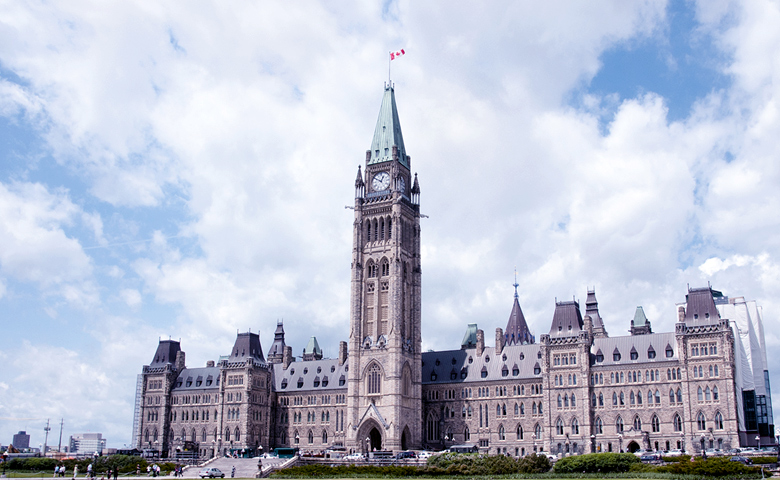Updated on February 19, 2024
As winter approaches, many dream of buying a property by the sea in Florida or a golf course in Arizona. But what happens at the time of death?
Owning real estate in the United States requires proper estate planning to avoid unpleasant surprises, hassles and excessive costs for the estate.
The first common error is assuming that the will is the final authority and that the property will automatically pass to the beneficiaries. This is not always the case.
A will drawn up and notarized in Canada is valid in the United States. It is not necessary to make one specifically for the U.S. However, U.S. laws stipulate that on the death of the Canadian owner of a residence in the United States, the will notarized in Canada must be probated by the U.S. authorities. This process must be completed before the property can be transferred to the estate.
Probating the will: high costs and delays
Even though it is a simple formality, this process involves significant costs, based on a certain percentage of the value of the estate or an hourly rate. In addition, the time needed to obtain probate can be quite long, ranging from six to twelve months.
If the will is not in English, it will also have to be translated, which will cause further delays and additional costs. It would be helpful to file an English version of your will here in Canada.
How can I avoid probate?
There are, however, legal instruments or ways of holding a residence in the U.S. that make it possible to avoid probate of a will in that country. This makes it easier to transfer property to the estate.
Joint Tenancy With a Right of Survivorship
In estate law, Joint Tenancy With a Right of Survivorship allows a couple, for example, to share a property with the same equal right to retain or dispose of the property. Simply put, the surviving spouse automatically inherits the property without having to go through the probate process.
Lady Bird Deed and Life Estate
A Lady Bird Deed and Life Estate are tools that facilitate the transfer of the deceased’s property to the heirs while ensuring that the use, control and ownership of the property are maintained during the deceased’s lifetime.
Revocable trust
Lastly, setting up a revocable trust to transfer ownership also allows beneficiaries to avoid the inconvenience of probate proceedings. However, it is important to be careful when using such a vehicle. In some cases, the trust may be subject to the 21-year deemed disposition rule. If so, it could be deemed to have sold and reacquired the property after that time. The accrued gains would then be taxed, even if the property is not sold. While a revocable trust may be useful in some cases, it’s not always appropriate.
Better safe than sorry
In all cases, it is important to ensure that the will provisions do not conflict with the legal status chosen to ensure the transfer of property.
Anyone wishing to purchase property in the United States would be well advised to plan such an acquisition carefully in order to facilitate the transfer of title to the heirs, and at a lower cost.
25 Jan 2023 | Written by :
Mr. Jean-François Poulin is a partner at Raymond Chabot Grant Thornton. He is your expert in...
See the profileYou could also like to read
Next article
Updated on February 19, 2024
The death of a non-resident who owns real property in Canada raises several tax issues. What are they?
These issues are complex and involve various parties, primarily the estate executor, the heirs and the notary.
The following is an overview of the various steps that must be taken to ensure the proper settlement of the Canadian estate of a deceased non-resident.
Defining tax residence
The first issue is defining the tax residency of the estate in order to identify the resulting tax obligations. For example, when a non-resident who owns real property in Canada dies, the property is generally transferred to the estate. The tax residence of an estate is normally that of the designated executor. If the executor is a non-resident of Canada, barring exceptions, the estate is considered to be non-resident of Canada for tax purposes.
This is a key issue, as there are different tax obligations for resident and non-resident estates, and failure to meet these obligations could result in significant penalties.
Tax residence of the property beneficiaries
It is also important to determine the tax residence of the real property’s beneficiaries to accurately determine the tax obligations of the heirs and the estate when the property is transferred to the beneficiaries or the estate is settled.
Transfer to heirs or sale of real property
Upon the death of a non-resident, the estate has two options: transfer the real property to the heirs or sell it and redistribute the proceeds to them. This is an important choice, as the tax obligations differ not only according to the type of transaction contemplated, but also according to whether the beneficiaries are Canadian residents or not – which is why it is important to look at all the impacts before going ahead with the transaction.
Certificate of compliance request
When the real property is transferred to the heirs or sold, the estate or heirs may have to quickly file requests for certificates of compliance in order to notify the Canada Revenue Agency and Revenu Québec and pay any applicable taxes. The governments wish to collect taxes quickly in order to avoid potential defaults. This information is transmitted using the specified forms and must be sent to the tax authorities no later than ten days following the transfer or sale of the property.
The tax authorities will then issue a certificate of compliance, but only after the estate has paid the tax payable on the disposition of the real property. A non-resident estate or non-resident beneficiary that fails to take these mandatory steps may be subject to significant penalties.
Filing tax returns
The estate is also required to file a final tax return for the deceased to report a deemed disposition of the real property on the date of death and later file its own return, if required, to report the actual disposition of the property listed on the forms. It can then attach the certificate of compliance to the tax return.
As you can see, the death of a non-resident who owns a real property located in Canada entails complex tax obligations. This is why the role of an estate and international tax expert is essential. This expert can assist the estate liquidator, beneficiaries and notary to ensure that the estate is in compliance with the applicable tax provisions and can also ensure that each of the parties involved meets its tax obligations at every stage, from the death of the taxpayer to the settlement of the estate.
These can be complex issues. To avoid any unintentional omissions and to fully understand your tax rights and obligations, don’t hesitate to call on an expert for help.
25 Jan 2023 | Written by :
Kais Yousfi is a tax expert at Raymond Chabot Grant Thornton. Contact him today!
See the profileNext article
For entities that operate in a variety of types of businesses, geographical locations, regulatory or economic environments or markets, high quality management accounts are essential. They enable management to monitor performance, allocate resources and devise business and market strategies.
IFRS 8 Operating Segments requires much of this management information for publicly listed entities to be published externally, so that investors, analysts and other users of the entities’ financial statements can review an entity’s operations from the same perspective as management.
The Insights into IFRS 8 series considers key implementation issues, provides interpretational guidance in certain problem areas and includes several examples illustrating the standard’s requirements.
The final two publications in the Insights into IFRS 8 series are on the following topics:
- Disclosures for annual financial statements;
- Disclosures for interim financial statements.
Read this Adviser Alert for details.
Next article
A return will have to be filed with the CRA no later than April 30, with respect to any residential property (detached house, condominium, duplex or triplex) held in Canada by a Canadian private corporation, a personal trust or a partnership.
Non-resident individuals are also subject to this obligation provided in the Underused Housing Tax Act.
Important: plan to request an identification number (if necessary)
For this purpose, corporations will need to obtain an Underutilized Housing Tax (UR) Program Account. This request can be made online, starting February 7. Non-resident individuals will need to have a tax identification number (ITN) to file this return.
Summary of applicable rules
Since 2022, any owner, on December 31 of the year, of a residential property located in Canada may be subject to the Underused Housing Tax Act. Subject owners must file a declaration and, in certain cases, pay a tax of 1% of the value of the building, on an annual basis.
This tax essentially applies to vacant or underutilized residential properties that are directly or indirectly owned by non-resident aliens. Canadian citizens and permanent residents who personally own a residential property in Canada are not subject to this law.
Private taxable Canadian corporations as well as Canadian citizens and permanent residents who own residential property through a personal trust or partnership are not excluded owners. They may be exempt from the tax, but they are required to file an annual return with the CRA in order to claim this exemption. Failure to comply with this obligation by April 30 of the following calendar year may result in significant penalties.
Read our Tax Bulletin for more information.






